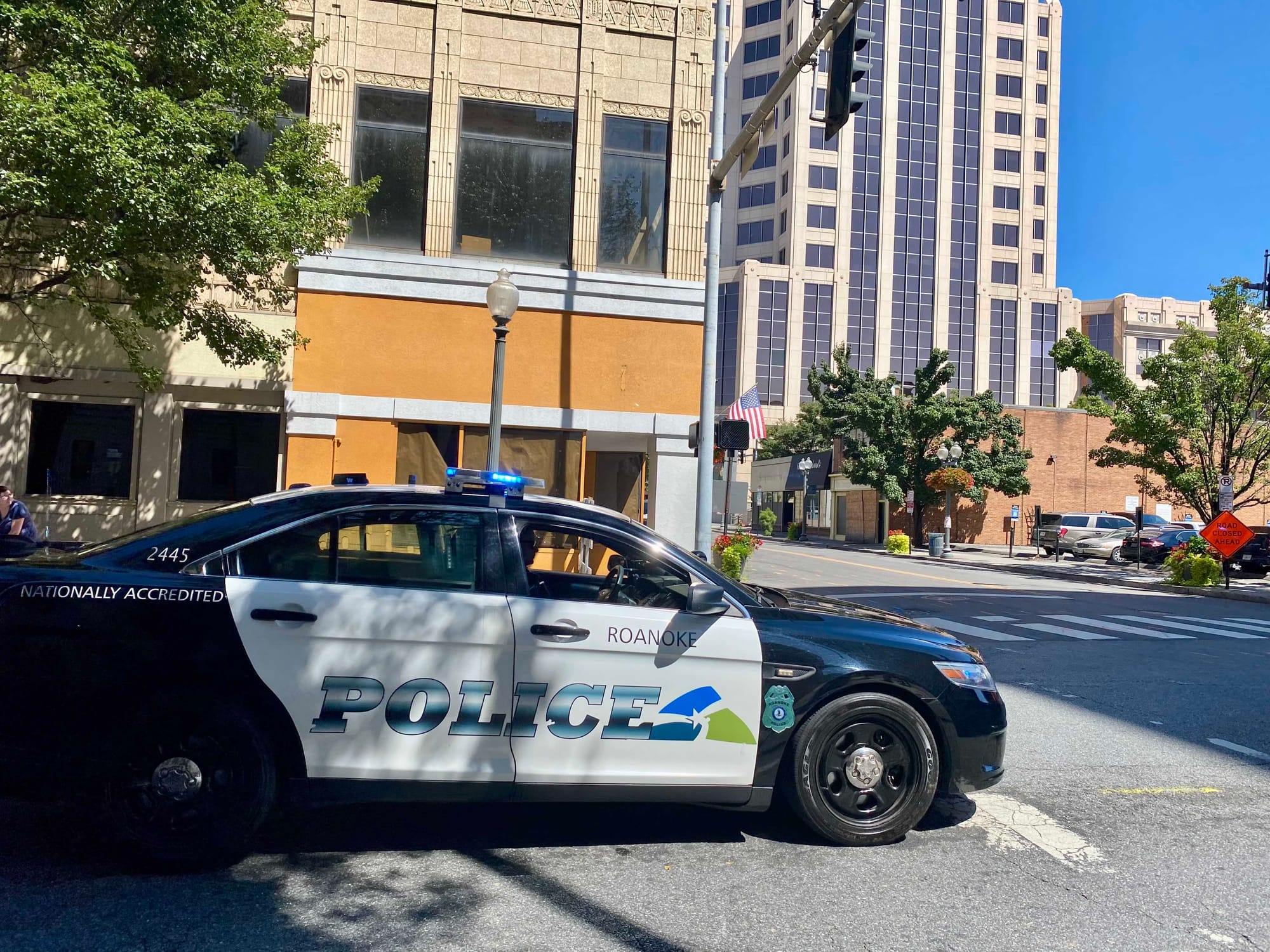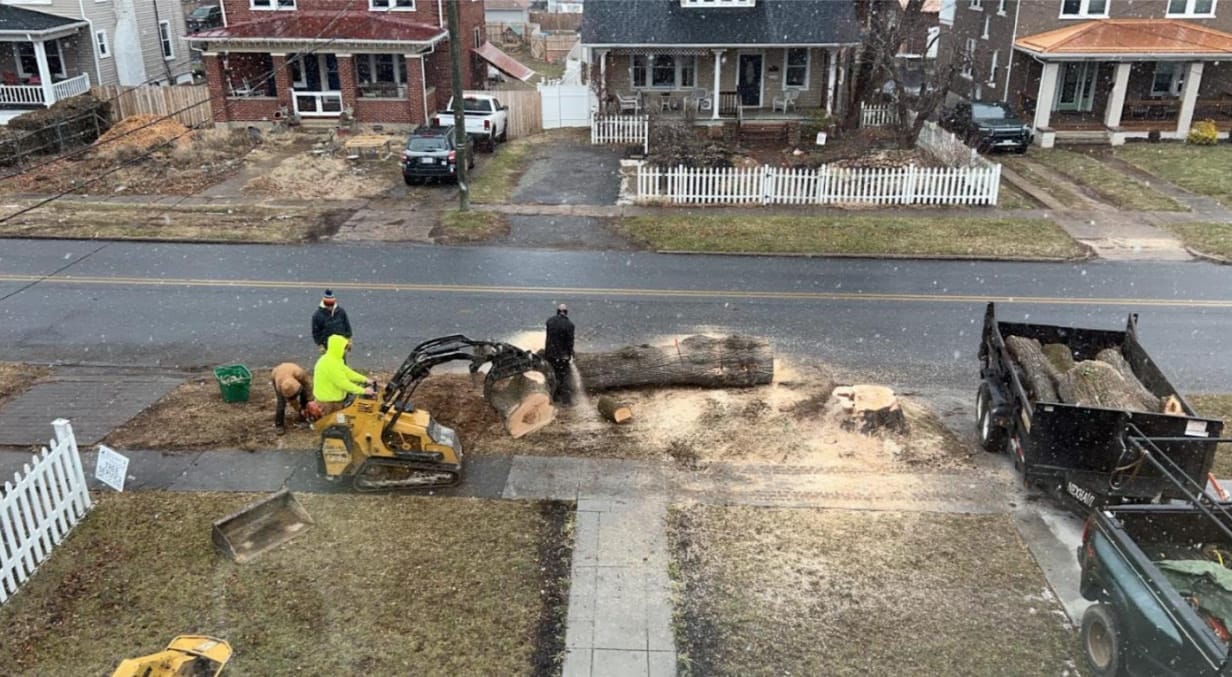Ramblings: Audit Shows City Fleet Needs Tune-Up; Roanoke Tree-Cutting Case Settled; Suit Refiled in Toxic City Hall Claim
What are Ramblings? Ramblings are a collection of short items that have caught our attention for one reason or another.
What are Ramblings? Ramblings are a collection of short items that have caught our attention for one reason or another. We’re on the lookout for tidbits related to money in politics, data, business, civic engagement or interesting events. Think you know of something that could be a Rambling? Drop us a line at editor@roanokerambler.com and we may well write about it. Happy reading!

Audit finds Roanoke runs fleet on borrowed money
The city’s fleet management needs a major tune-up, according to a Roanoke municipal audit.
One significant diagnosis: Since 2022, more than half of the total funding meant to replace outdated vehicles is instead being used to make payments on borrowed debt, according to the audit.
For the 2024-28 capital improvement plans, the audit found that 74 percent of the available taxpayer-financed funding of about $35 million is tied to existing or future debt.
That is not an ideal situation, according to the audit, because the department needs more cash to buy new vehicles and equipment.
Some numbers to back that up: In its response to the audit, the department’s managers said there is money to replace approximately 23 vehicles a year, but the backlog has grown to 200 to 250.
More than 800 vehicles make up the city’s fleet — from police cruisers to ambulances to trash trucks to the city manager’s car. The department estimated that it would cost $33.8 million to replace the vehicles in service in 2023 that had no remaining useful life, according to the audit. The average age of a city vehicle is eight to nine years.
“The volume of debt being used is relatively new,” said Assistant Municipal Auditor Dorothy Haskins, who presented the findings at a recent city Audit Committee meeting.
She compared the situation to having a 30-year mortgage on a house – which doesn’t make sense when applied to a vehicle, with a far less lifespan and far greater depreciation.
For some items, such as fire trucks, their sticker prices are high enough — and their lifespans substantial enough — for longer term debt to be used. But not on a pick-up truck, Municipal Auditor Drew Harmon said.
So how did the city get in this situation?
The audit pegged the issue to 2017. The city stopped treating the department as what’s known as an “internal service fund” and absorbed it into the general fund.
With an internal fund, departments that use the fleet make payments to create a pool of money that can be used to buy replacement vehicles and equipment.
Harmon said that from his recollection the change was made to simplify transactions and the budget process. But he said there probably wasn’t a proper evaluation done about the pros and cons. The auditing department had no involvement at that point, he said.
“This change was not consistent with government finance best practices that recommend using internal service funds to support fleet replacement needs and to smooth the cost of replacements from year-to-year,” the audit states.
City Manager Valmarie Turner said she was not aware of the background on the 2017 change and can’t form an opinion about a possible remedy until she has that.
“But I definitely take their (the auditors) recommendations under advisement,” she said.
The audit delved into other issues as well, some of which have been rectified, Fleet Manager Wayne Farley said during a recent meeting. That includes new technology that’s improved an audit finding that a large percentage of vehicles sampled were not being serviced in a timely manner for preventative maintenance such as oil changes.
Also, the department pays the private firm NAPA Auto Parts a $21,000 monthly management fee plus wholesale costs of its parts. The company staffs a counter within the municipal service center building on Courtland Road Northeast. Auto parts, due to inflation and tariffs, are escalating in price, which is another issue the fleet department faces. As of June 30, 2024, spending on parts and supplies was almost double the amount budgeted ($2.3 million versus $1.3 million), according to the audit. There was a 40 percent increase in the cost of automotive parts from April 2020 to April 2025, the audit found.
It’s likely a benefit for the fleet department to have a locked-in contract with NAPA at this point, to protect against even greater swings that could occur without it, according to discussion during the audit committee meeting.
Employee turnover, particularly with trash truck drivers, is a challenge as well, Farley said during the meeting. That leads to more frequent maintenance on heavy equipment due to a lack of driver experience, he said.
With a new city pay scale passed for this budget year, Farley said the department is making strides.
In 2024, Roanoke City’s Fleet Management Division was ranked as the 64th best public fleet by the National Association of Fleet Administrators (NAFA), the audit states.

Homeowners, city settle over cut-down trees
After Roanoke sued a couple who chopped down city-owned trees outside their Grandin Village home, the two sides agreed this month to settle for $5,000.
The city sued Lisa and Doug Hubert, as well as Brown Hound Tree Services, in February over the January 2024 removal of two American basswoods in the curb strip. The city had sought $68,000 from the tree cutter and the Huberts, who the lawsuit alleged were told multiple times they could not remove the trees.
The Huberts, both sworn Virginia State Police employees, acknowledged they had repeatedly requested the city “abate a dangerous nuisance (e.g. – remove two diseased and rotting trees at risk of falling and causing personal and physical damages),” according to court records.
But the Huberts recalled a 2023 phone conversation with an urban forestry employee who said they could remove the trees themselves at their own cost, they alleged in court records.
Over the years, the Huberts said they paid to replace seven sections of city sidewalk that the trees’ roots had upended, as well as a new driveway.
City Attorney Tim Spencer on Tuesday described the settlement, reached Sept. 4, as a fair outcome.
“The real reason was to send the message: Please don’t cut down trees on public property without permission,” Spencer said. “It wasn’t meant to punish someone severely — you have to work with the city. If the city says ‘no,’ no means no.”
Doug Hubert said his homeowner’s insurance paid half the settlement amount as did the insurance company for Brown Hound Tree Services.
As part of the settlement, the defendants and their insurance companies denied any liability. The Huberts had previously planted a tree and agreed to pay for a second to be planted elsewhere in Roanoke.
Carrie Poff, owner of Brown Hound, said she believes in helping bridge communication gaps between property owners and government agencies “so that together, we can maintain our precious canopy while keeping the property and people in our community safe from hazardous trees.”

Suit refiled over toxic workplace claim at city hall
Former Roanoke finance officials are embroiled again in litigation alleging a toxic workplace and retaliation.
Amelia Merchant and Yen Thuy Ha, former city finance employees, dropped their lawsuits last month against former assistant city manager Brent Robertson, former city manager Bob Cowell and current Deputy City Manager Angela O’Brien.
But on Sept. 9, Ha filed a similar lawsuit — this time against just Robertson. Attorney Thomas Strelka said Tuesday he anticipates filing a suit on behalf of Merchant this year.
Ha alleged she was paid less than her junior male coworkers. The lawsuit says Robertson rejected her pay request after an HR study, threatened her, and demoted her when Ha complained of mistreatment.
The lawsuit describes Robertson as “overly aggressive and pugnacious” in a February 2024 meeting with Ha and says she experienced a “shocking and terrifying confrontation at her workplace” the following month. The suit alleges Robertson “created a reasonable apprehension of immediate injury” to Ha when he berated her after she filled in for Merchant at a meeting.
The following day, “Mr. Cowell told the employees – despite their concerns – that it was an isolated incident, and they should all proceed as normal moving forward,” the lawsuit states.
The March 2024 incident prompted Merchant to encourage City Council to fire Robertson and Cowell. Ha resigned and took a job with Roanoke County. Cowell demoted Robertson and resigned under council pressure in June 2024. Robertson retired five months later.
Strelka said he refiled the lawsuit because of quirks in the state’s whistleblower protection act, which refers to an employee’s direct supervisor.
“This case was refined to reflect current case law,” he said.
Robertson’s attorney, Jim Guynn, said Tuesday he had no comment because he had not seen the new filing. In response to the initial lawsuit, Guynn had said, “We don’t believe the allegations are true and we believe the evidence is going to bear that out.”
Ha’s complaint was filed under seal, meaning it was hidden from public view. Circuit Court Judge David Carson on Tuesday ordered the records public after The Roanoke Rambler requested the court do so. Strelka says he did not seal the documents and did not know why they were.

